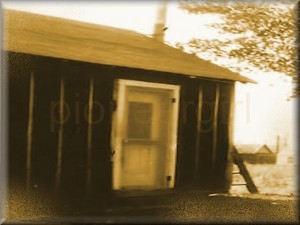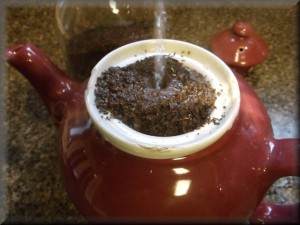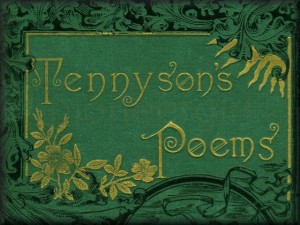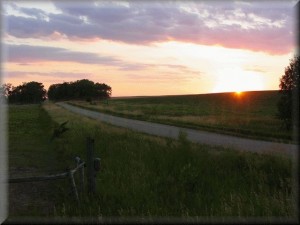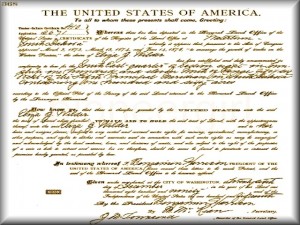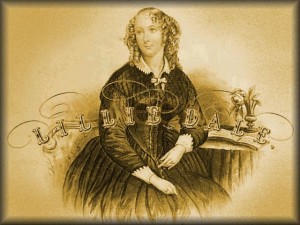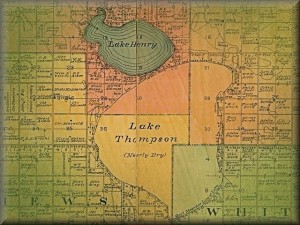T

The twentieth letter of the English alphabet. It is a simple consonant, allied to both D and N, all three of these letters being dental elements. When it is followed by h, as in think and that, the combination really forms a distinct sound, for which we have no single character. — Webster, 1882
Click on an image below to learn more.
Wait, there’s more!
The following is an incomplete list of the remaining indexed main headings. Once a completed entry has been uploaded, it will be removed from the list below and added to the links above. Subheadings, reference locators, and cross-referenced subentries are not included in this list. Always consult the completed entry for referenced source of definition used below.
tablet – A kind of pocket memorandum book.
taffy – A kind of candy made of molasses boiled down and poured out in shallow pans.
tailboard – The board at the hinder end of a cart or wagon, which can be removed or let down, for convenience in unloading.
tailor – One whose occupation is to cut out and make men’s garments.
Dr. George A. Tann – Homeopathic physician (1825-1909).
tap – To strike with something small, or to strike with a very gentle blow; to touch gently; as, to tap one with the hand; to tap one on the shoulder with a cane.
tardy / tardiness – Not being in season; late; dilatory.
tariff – A list or table of duties or customs to be paid on goods imported or exported.
tarnation – Exclamation; a euphemism for damnation.
task – Business or study imposed by another, often a definite quantity of labor. A lesson; a fixed portion of study imposed by a teacher; as, the boys were at their task.
taskmistress – One who imposes a task, or burdens with labor; one whose duty is to assign tasks; an overseer.
tassel – A sort of pendent ornament, attached to the corners of cushions, to curtains, and the like, ending in loose threads.
tawny – Of a dull yellowish-brown color, like things tanned, or persons who are sunburnt; as, a tawny Moor or Spaniard; the tawny lion.
teach – The act or business of instructing; instruction. To impart the knowledge of; to give intelligence concerning; to impart, as knowledge before unknown, or as rules for practice; to inculcate as true or important; to exhibit impressively; to tell. To direct as an instructor; to manage as a preceptor; to guide the studies of; to instruct; to inform; to conduct through a course of studies; as, to teach a child; to teach a school.
teacher – One who teaches or instructs, or one whose business or occupation is to instruct others; an instructor; a tutor.
teal – A web-footed water-fowl, nearly allied to the common duck, but smaller. The common teal is the Anas crecca.
teamster – One who drives a team.
tenderfeet – Plural of tenderfoot, a newcomer or novice unaccustomed to hardship.
“Ten Little Indians” – Adaptation of 1868 Septimus Winner minstrel show tune.
Tennessee – State in the south-central United States. Mr. Edwards was said to be from Tennessee.
tenor – The higher of the two kinds of voices usually belonging to adult males; hence, the part of a tune adapted to this voice; the second of the four parts in the scale of sounds, reckoning from the base, and originally the air, to which the other parts were auxiliary. A person who sings the tenor, or the instrument that plays it.
tent – A pavilion or portable lodge consisting of canvas or other coarse cloth, stretched and sustained by poles; – used for sheltering persons from the weather, especially soldiers in camp.
Texas longhorn – A breed of long-horned beef cattle developed from cattle introduced to North America from Spain in the early 19th century.
Thanksgiving – A public celebration of divine goodness; also, a day set apart for religious services, specially to acknowledge the goodness of God, either in any remarkable deliverance from calamities or danger, or in the ordinary dispensation of his bounties.
thatched – Straw or other substance used to cover the roofs of buildings, or stacks of hay or grain, for securing them from rain, snow, and the like.
Then what is the use of repining – Line of chorus from “Where There’s a Will, There’s a Way”
“There is a Fountain” – William Cowper hymn, first published in 1772.
thimble – A kind of cap or cover, or sometimes a mere ring, for the finger, used in sewing to protect the finger from the needle. It is usually made of metal, and is indented upon the surface with numerous small pits to catch the head of the needle.
thimble flower – The purple foxglove (Digitalis purpurea).
Third Street – East-west road in De Smet and location of second (brick) schoolhouse in De Smet.
This life is a difficult riddle – First line of “Where There’s a Will, There’s a Way.”
thistle – One of numerous prickly plants of the class Syngenesia, and several genera, as the common corn thistle, or Canada thistle; the spear-thistle; the milk-thistle, of the genus Carduus; the blessed thistle, of the genus Cnicus; the globe-thistle, of the genus Echinops; the cotton-thistle, of the genus Onopordon; and the sow-thistle, of the genus Sanchus. The name is also given to other prickly plants not of the class Syngenesia; as the fuller’s thistle or teasel, of the genus Dipsacus; and the melon thistle, and torch thistle, of the genus Melocactus. One species of thistle, Cirsium (Carduus) arvense, grows in fields among grain, and is extremely troublesome to farmers. It is called in America the Canada thistle, as it first appeared in Canada, where it was probably introduced from France, as it abounds in Normandy, and also in England. A larger species in America, Cirsium (Carduus) lanceolatum, is indigenous; but it spreads slowly, and gives no trouble. The thistle is the national emblem of Scotland.
Mr. Thompson – Miserly man who lost pocketbook found by Almanzo Wilder.
thoroughbred – Bred from the best blood, as horses. Hence, completely bred or accomplished.
threshold – The door-sill; the plank, stone, or piece of timber which lies at the bottom or under a door, especially of a dwelling-house, church, temple, or the like; hence, entrance; gate; door.
thrush – A small, plainly colored singing bird, of various species; as, (a) The American wood-thrush, a stout thrust of a reddish-brown color; Turdus mustelinus. (c) The American brown thrush, or thrasher.
tight-fisted – Miserly.
till, part of a trunk – A drawer.
timber – 1. That sort of wood which is proper for buildings or for tools, utensils, furniture, carriages, fences, ships, and the like; – usually said of felled trees, but sometimes of those standing. 2. Material for any structure. 3. A single piece or squared stick of wood for building, or already framed; the larger pieces or sticks of wood, forming the frame-work of a house, ship, or other structure, in distinction from the covering or boarding. 4. Woods or forest; wooded land.
time keeper / time-keeper / timekeeper – A person who keeps a record of the time persons have worked.
timid / timidity – Wanting courage to meet danger; timorous; not bold; fearful. Timidity is the quality or state of being timid; want of courage or boldness to face danger; timorousness; fearfulness; timidness.
timothy – A kind of grass (the Phleum pratense, or herda-grass) much prized for fodder.
tin – A white, soft, non-elastic metal, very malleable, and, when a bar of it is bent near the ear, distinguished by a crackling sound, called the cry of tin. It fuses at 442o Fahrenheit, and has a specific gravity of 7.3. Alloyed with lead, it forms pewter and solder; with small proportions of antimony, copper, and bismuth, it forms block-tin, britannia, &c.; and united with copper in different proportions, it forms bronze, bell-metal and speculum-metal. Tinfoil, coated with quicksilver, forms the reflecting surface of glass mirrors.
tippet – A narrow garment or covering for the neck, made of fur, cloth, or other warm material.
tobacco – 1. A plant, a native of America, of the genus Nicotiana, much used for smoking and chewing, and in snuff. As a medicine, it is narcotic, emetic, and cathartic. Tobacco has a strong, peculiar smell, and an acrid taste. 2. The leaves of the plant prepared for smoking, chewing, &c., by being dried, and manufactured in various ways.
tomato – A plant and its fruit; the Lycopersicum (or Solanum) esculentum. The fruit, which is called also love-apple, is usually of a rounded, flattened form, but often irregular in shape. It is of a bright-red or yellow color, and is eaten either raw or cooked.
tomboy – A rude, boisterous boy; also, and more commonly, a romping girl.
tombstone – A stone erected over a grave, to preserve the memory of the deceased; a monument.
tongs – An instrument, usually of metal, consisting of two parts, or long shafts, joined at one end, used for handling things, especially fire or heated metals; – often called a pair of tongs.
tow – The coarse and broken part of flax or hemp, separated from the finer part by the hatchel or swingle.
towel – A cloth used for wiping the hands, and for other purposes; a napkin.
town – A township; the whole territory within certain limits, less than those of a county. Any collection of houses larger than a village, and not incorporated as a city; – often opposed to country. The metropolis or its inhabitants; as, the gentleman lives in town in winter; in summer, he lives in the country.
toy – A plaything for children. A thing for amusement, but of no real value; an article of trade of little value; a trifle.
traces – The two straps, chains, or ropes by which a carriage or sleigh is drawn by horses.
track – A mark or impression left by the foot, either of man or beast; trace; vestige; footprint. A road; a beaten path. The permanent way of a railroad.
Tracy, Minnesota – Town eight miles west of Walnut Grove in Lyon County, platted in 1875 and named for John F. Tracy, former president of the Chicago and Northwestern Railway.
train – A continuous or connected line of cars or carriages on a railroad. Train is the word universally used in England with reference to railway traveling; as, I came in the morning train, &c. In the United States, the phrase the cars has been extensively introduced in the room of train; as, the cars are late; I came in the cars, &c., thought, in fact, a person travels in only one car. The English expression is obviously more appropriate, and is prevailing more and more among Americans, to the exclusion of the cars.
trap – An engine or contrivance that shuts suddenly or with a spring, used for taking game; as, a trap for foxes.
trap door / trap-door / trapdoor – A door, as in a floor or roof, which shuts close, like a valve.
treadle – The part of a loom, or other machine, which is moved by the foot.
treble – The highest of the four principal parts in music; the part usually sung by females; soprano. This is sometimes called the first treble, to distinguish it from the second treble, or alto, which is sung by lower female voices.
tree – To drive to a tree; to cause to ascend a tree; as, a dog trees a squirrel.
tree – A plant which is woody, branched, and perennial, like a shrub, but of larger size, generally exceeding ten feet in height, and of a single stock instead of a cluster. Trees are of various kinds; as nuciferous, or nut-bearing trees; bacciferous, or berry-bearing; coniferous, or cone-bearing, &c. Some are forest-trees, and useful for timber or fuel; others are fruit-trees, and cultivated in gardens and orchards; others are used chiefly for shade and ornament.
tribe – A nation of savages or uncivilized people; a body of rude people united under one leader or government; as, the tribes of the Six Nations; the Seneca tribe in America.
troops – A collection of people; a company; a number; a multitude. Soldiers taken collectively; an army.
trot – To move faster than in walking, as a horse or other quadruped, by lifting one fore foot and the hind foot of the opposite side at the same time. To walk or move fast; to run.
trousies – Trousers, a loose garment worn by males, extending from the waist to the knee or the ankle, and covering the lower limbs.
trout – A fresh-water fish, of the genus Salmo, variegated with spots, and esteemed most delicate food. The brook-trout of America is Salmo fontinalis; the late-trout, S. confines.
Trout River – Stream in Burke Township, New York, which ran through the James Wilder farm.
trundle bed – A low bed that is moved on trundles or little wheels, so that it can be pushed under a higher bed; a truckle-bed; also, sometimes, a similar bed without wheels.
trunk – A box or chest covered with leather or hide, for containing clothes, &c.; especially, one used to convey the effects of a traveler; a portmanteau.
tub – An open wooden vessel formed with staves, heading, and hoops; a kind of short cask with but one head; – used for various domestic purposes, as for washing, and the like. Hence, the amount which a tub contains, as a measure of quantity. Any structure shaped like a tub.
tuck, sewing – A horizontal fold made in the garment, to accommodate it to the height of a growing person. Folded under. Pressed into a narrower compass; as, to tuck up a garment.
tumble weed / tumbleweed – Any of various plants that breaks from its roots in late summer and is blown about by the wind.
tumbling rod – Shaft of a threshing machine that connected the horse-power to the separator, an exposed iron rod or rods connected by metal knuckles. It lay on the ground and turned rapidly when the machine was in use.
tuning fork / tuning-fork – A steel instrument consisting of two prongs and a handle, which being struck, gives a certain fixed tone; – used for tuning instruments, or for ascertaining the pitch of tunes.
turban – A head-dress worn by ladies.
turkey – A large gallinaceous fowl (the Meleagris gallopavo), a native of America. The flesh is highly valued for food. Wild turkeys abound in the forests of America, and the fowl has been domesticated in America and in other countries.
Turkey Creek – Location of a railroad campsite of Henry Stebbins’ workers, most likely Little Turtle Creek (not Turkey) in Hand County, near Lawrence.
two-faced – Insincere; deceitful.







